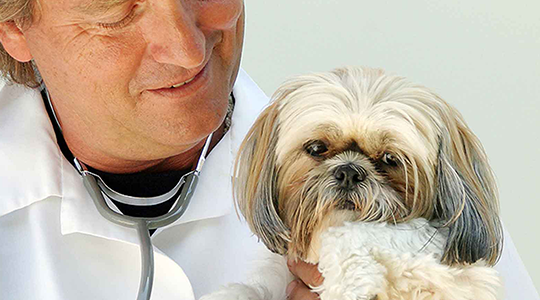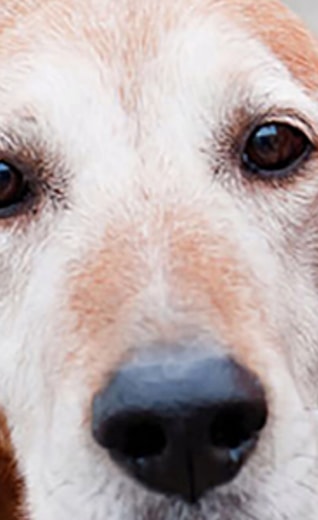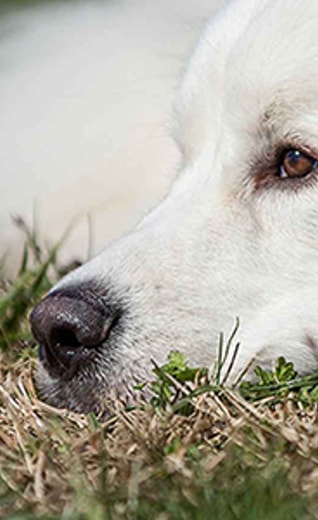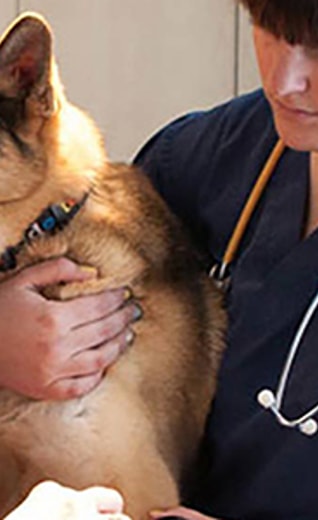
A Few Shih Tzu Health Concerns
Each breed has its own set of health problems. Luckily for the Shih Tzu, their list of health worries is relatively short! Working our way from head to toe, here is a list of the most common Shih Tzu health concerns:
Eye Problems
The Shih Tzu's short face and big, bulgy eyes can present him with several different eye problems. Some of the most common include:
- Infections: Because the Shih Tzu has large eyes and shallow eye sockets, foreign materials that fly around in the air can enter the area under his eyes, leading to inflammation and infection.
- Corneal ulcers: The Shih Tzu's protruding eyes are not only at risk for infections and injury, but also for corneal ulcers. This condition can be caused by wind, rubbing his eyes with his paws, or any foreign object that scratches the eye.
- Cataracts: This condition is characterized by the loss of transparency of the lens of the eye. When this occurs, a Shih Tzu will lose vision in that eye. If this condition affects both eyes, it can lead to blindness.
- Entropion: A Shih Tzu suffers from entropion when one or both of the eyelids turns inwards, causing his eyelashes to irritate the eyeball.
- Epiphoria: Epiphoria is also referred to as 'wet eye,' or an overflow of tears or excessive tearing. This condition sometimes occurs when a dog's tear ducts do not drain properly. This occurs because the Shih Tzu has a short face. Infections and other eye issues can also cause epiphoria.
Breathing Problems: Heatstroke
The Shih Tzu's short face not only makes them susceptible to eye problems, but also respiratory issues, such as heatstroke. When temperatures rise and humidity kicks in, it becomes much more difficult for short-faced dogs like the Shih Tzu to breath. This can cause a Shih Tzu to collapse on very hot days and even put them at risk for heatstroke.
Back Problems
Because the Shih Tzu has a long back, he can suffer from back and neck problems. The most common is intervertebral disk disease. The intervertebral disks are made to cushion the spine. When they bulge or rupture they often cause nerve problems as well as severe pain. This condition can lead to permanent weakness or paralysis if not treated appropriately.







